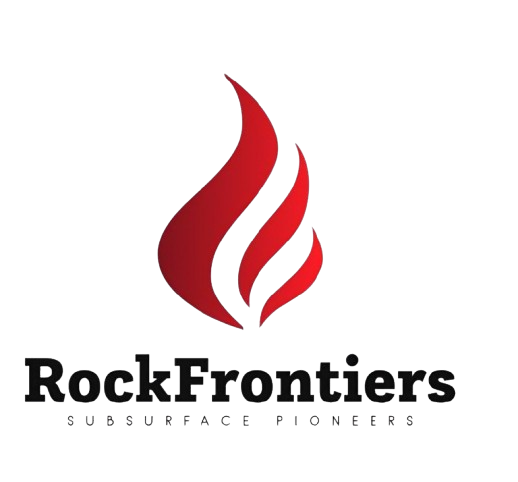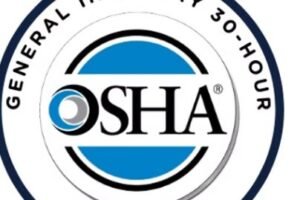Naturally Fractured Reservoirs – Characterization and Management
Course Overview: This course focuses on understanding the behavior and management of naturally fractured reservoirs (NFRs). Participants will learn how to characterize, model, and optimize production from dual-porosity systems using field data, analogs, and simulation tools. 📅 Day 1: Introduction …
Overview
Course Overview:
This course focuses on understanding the behavior and management of naturally fractured reservoirs (NFRs). Participants will learn how to characterize, model, and optimize production from dual-porosity systems using field data, analogs, and simulation tools.
📅 Day 1: Introduction to Fractured Reservoirs
-
09:00–09:45 – Types of fractured reservoirs and global examples
-
09:45–10:30 – Matrix–fracture interactions and flow mechanisms
-
10:30–10:45 – ☕ Coffee Break
-
10:45–11:30 – Fracture classification and origin (tectonic vs. diagenetic)
-
11:30–12:15 – Basic concepts: porosity, permeability, and anisotropy
-
12:15–13:15 – 🍽️ Lunch Break
-
13:15–14:00 – Identifying fractures from cores and outcrops
-
14:00–14:45 – Group activity: fracture identification exercise
-
14:45–15:00 – Recap and Q&A
📅 Day 2: Fracture Detection and Reservoir Characterization
-
09:00–09:45 – Use of image logs (FMI/OBMI) in fracture analysis
-
09:45–10:30 – Seismic fracture detection and azimuthal analysis
-
10:30–10:45 – ☕ Coffee Break
-
10:45–11:30 – Integration of core, log, and seismic data
-
11:30–12:15 – Fracture network modeling: DFN concepts
-
12:15–13:15 – 🍽️ Lunch Break
-
13:15–14:00 – Fracture intensity, spacing, and connectivity
-
14:00–14:45 – Hands-on: building a basic DFN in software
-
14:45–15:00 – Recap and Q&A
📅 Day 3: Dual-Porosity Modeling and Fluid Flow
-
09:00–09:45 – Dual-porosity vs. dual-permeability models
-
09:45–10:30 – Flow behavior in NFRs: imbibition and capillary forces
-
10:30–10:45 – ☕ Coffee Break
-
10:45–11:30 – Matrix-fracture transfer function: Kazemi, Warren–Root
-
11:30–12:15 – Impact of fracture orientation on reservoir performance
-
12:15–13:15 – 🍽️ Lunch Break
-
13:15–14:00 – Simulation models for NFRs: static and dynamic
-
14:00–14:45 – Practical: simulating fluid flow in fractured media
-
14:45–15:00 – Recap and Q&A
📅 Day 4: Production Optimization in Fractured Reservoirs
-
09:00–09:45 – Well placement and completion in fractured reservoirs
-
09:45–10:30 – Artificial lift and stimulation strategies
-
10:30–10:45 – ☕ Coffee Break
-
10:45–11:30 – Pressure transient analysis in NFRs
-
11:30–12:15 – Case study: fractured carbonate field development
-
12:15–13:15 – 🍽️ Lunch Break
-
13:15–14:00 – Decline curve analysis and type curve matching
-
14:00–14:45 – Hands-on: PTA analysis for fractured wells
-
14:45–15:00 – Recap and Q&A
📅 Day 5: Case Studies and Integrated Management
-
09:00–09:45 – Case study 1: fractured basement reservoir
-
09:45–10:30 – Case study 2: tight carbonate with natural fractures
-
10:30–10:45 – ☕ Coffee Break
-
10:45–11:30 – Surveillance and monitoring in NFRs
-
11:30–12:15 – Optimizing long-term recovery from fractured fields
-
12:15–13:15 – 🍽️ Lunch Break
-
13:15–14:00 – Team project: interpret and model a fractured reservoir
-
14:00–14:45 – Group presentations and peer critique
-
14:45–15:00 – Wrap-up and certification
Target audiences
- Reservoir Engineers, Geologists
You May Like
📘 Underbalanced Drilling (UBD) Techniques and Safety
🎯 Course Description: This intensive 5-day program focuses on Underbalanced Drilling (UBD) – an advanced technique used to drill wells where the hydrostatic pressure of the fluid is intentionally kept below formation pressure. Participants will learn how to implement UBD …
📘 IOSH Managing Safely
🎯 Course Description: A practical, 5-day program designed to help managers and supervisors learn how to manage safety and environmental responsibilities in their teams. Emphasis is placed on identifying risks, measuring performance, and leading safely using internationally recognized good practices. …
📘 IWCF Level 3 Well Control (Surface BOP)
🎯 Course Description: This is an intensive course aimed at drilling / well service personnel needing to gain supervisory competence in well control using surface blow‑out preventers (BOP) under the IWCF standard. It covers theory, hands‑on practice, and assessments for …
Advanced Specialist Petroleum GeoMechanics
📘 Course Description: This elite-level course is tailored for petroleum geomechanics specialists and senior subsurface professionals engaged in complex field development projects. It provides a deep technical dive into stress modeling, anisotropic rock behavior, coupled geomechanical-reservoir simulation, fault/fracture mechanics, and …
📘 OSHA 30‑Hour General Industry Safety and Health
🎯 Course Description: This 5‑day course provides in‐depth knowledge of workplace safety and health in general industry sectors. It covers OSHA regulations, hazard recognition, safety programs, and industry best practices. Participants will gain the expertise needed to maintain a safe …






